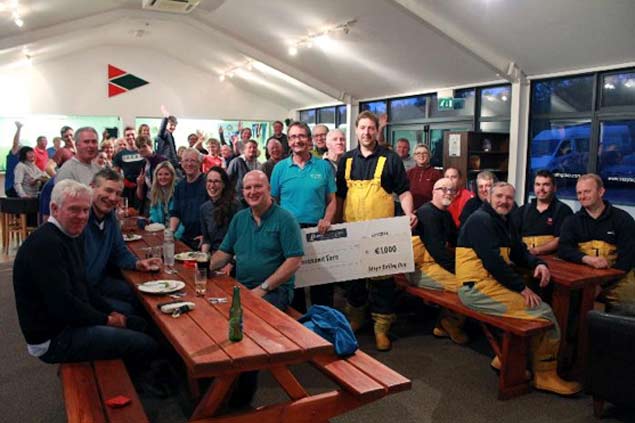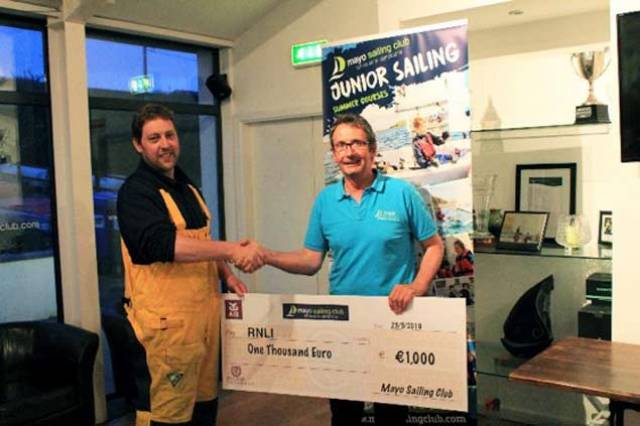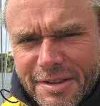Going out to sea has always had a certain level of risk attached to it. When a boat breaks down and starts to drift out towards America or worse towards a rocky shore, help has not always been close to hand writes Alex Blackwell. It used to be up to the local community to mount a rescue or recovery – if, that is, news got through to them and if there happened to be a boat available. Two-way radios were scarce and mobile phones had not even been dreamt up yet.
So it was in the mid-seventies when the Mulloy Brothers went out fishing only to be shipwrecked on one of the islands in Clew Bay when their engine failed. Word went out about the incident, but it was ‘spring’ low tide and most boats were high and dry. Two local boats did make it out, a punt and a larger motorboat. The brothers were ferried out to the larger boat and disaster was fortunately averted.
 Mayo Sailing Club members and the Lifeboat crew enjoying an evening after sailing at the MSC clubhouse in Rosmoney
Mayo Sailing Club members and the Lifeboat crew enjoying an evening after sailing at the MSC clubhouse in Rosmoney
Efforts were made right after this incident to get a lifeboat for Clew Bay, where there were numerous part-time fishermen and the Clew Bay Oyster Co-operative had just been formed. Mayo Sailing Club had also just been formed, heralding the advent of an ever-increasing fleet of sail and power boats on the bay. It wasn’t however until twenty years later, in 1995, that the RNLI station at Kildavnet, Achill Island was established.
Mayo Sailing Club has been going strong ever since it was founded. With over 300 members and more than 60 boats in the harbour, MSC members love to get out on beautiful Clew Bay and beyond. Along with the fishermen in and around Clew Bay, MSC members very much appreciate knowing that the RNLI and Coast Guard have their backs. At a recent event, they gladly reached into their pockets and €1,000 was raised for the RNLI.
"Mayo Sailing Club is delighted to be associated with and support the RNLI Achill lifeboat. It is a tremendous asset and reassurance to have them here on possibly Europe's most isolated, rugged, but beautiful coastline. Well done and thank you all those who voluntarily give their time to this," Duncan Sclare, MSC Commodore
“As leisure users of the great seas that surround us it is important that we support a safe and responsible use of this fantastic resource. The RNLI are the agency of first response to boats in distress. We plan to never need to use the maritime rescue services, however, we have the security of knowing that the RNLI will react to requests for assistance and our donation is a small recognition of the great service provided by this voluntary organisation,” Conn Lavelle, MSC Sailing Secretary.































































